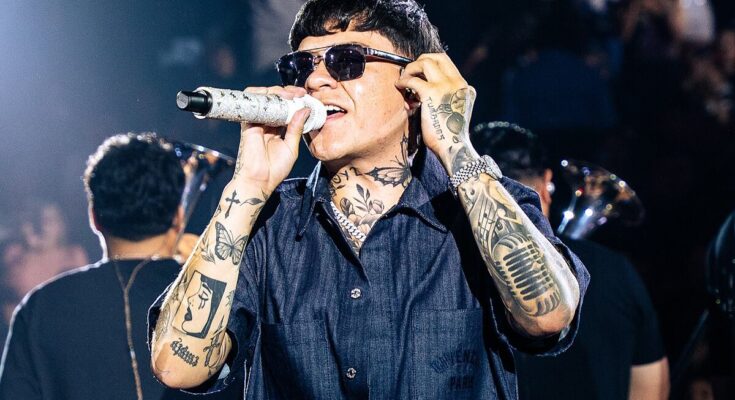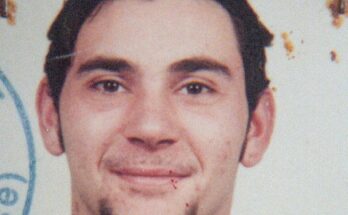Corridos tumbados singer Antonio Herrera, better known by his stage name, Junior H, appeared on Tuesday afternoon before the Jalisco Prosecutor’s Office for alleged crime excuses during his performance at the palenque of the October state holidays, as reported this Wednesday by the Public Prosecutor in a statement. This is a step within the procedural process that derives from the controversy in which the musician has been involved since his concert in Zapopan, where he performed the controversial song. The Bluea corrido in which he outlines – together with Peso Pluma – Juan José Esparragoza Moreno, The Blueone of the key figures of the Sinaloa Cartel. The controversy began shortly after the palenque, when the mayor of Zapopan, Juan José Frangie, announced that Junior H would risk a fine of 33,000 pesos for that action.
The singer, one of the big names in corridos tumbados, apologized in early November with a statement: “During my last presentation in Guadalajara, with emotion and enthusiasm on stage, I performed songs that in the current context are not appropriate (…) With deep respect for the authorities of Jalisco, I offer a sincere apology and reiterate my commitment to performing songs that speak of love and broken hearts,” he declared in his writing.
But the apologies were not enough for the authorities to take a step back. “I thank you for the apology you ask for, but it is a matter that we anticipated. We discussed it with the palenque administration and the promoters, who in turn informed the singer,” Frangie explained to the media last Friday. And he specified: “He already knew that in Zapopan there was a fine and obviously a veto.” Article 142 of the penal code of the State of Jalisco establishes that anyone who publicly incites to commit a crime or supports or supports it or any vice can be punished with imprisonment of up to six months.
The controversy sparked in Zapopan is the latest example of the strong questions that corridos have received in the last year. This panorama exploded in the air at the end of March, after the performance of Los Alegres del Barranco at the Telmex Auditorium, one of the great forums of Guadalajara. The group then projected the images of Nemesio Oseguera, El Mencholeader of the Jalisco New Generation cartel, while they performed The palenque onetheme considered apologetic towards the figure of the Mexican boss. This action occurred when the country was still shocked by the discovery of Rancho Izaguirre, a killing center used by organized crime in the small town of Teuchitlán, Jalisco.
The performance led the United States authorities to withdraw the work visas of some artists of the genre and several States of the Republic joined in the veto on the apologetic texts. In Mexico, President Claudia Sheinbaum has reiterated on multiple occasions that she will not ban this type of musical content in the country, despite states imposing heavy fines and restrictions against these artists. The federal executive preferred to promote other types of texts among younger people, with the México Canta competition, which sought to promote content without violence.
Junior H has also been targeted in recent days for the delay of one of his performances in Tijuana which was supposed to take place on Monday evening on the square of the Caliente Stadium. The six hours it took the artist to get on stage led municipal authorities to fine his promoter up to a million pesos for failure to stick to the schedule, as the show began in the early hours of Tuesday.



